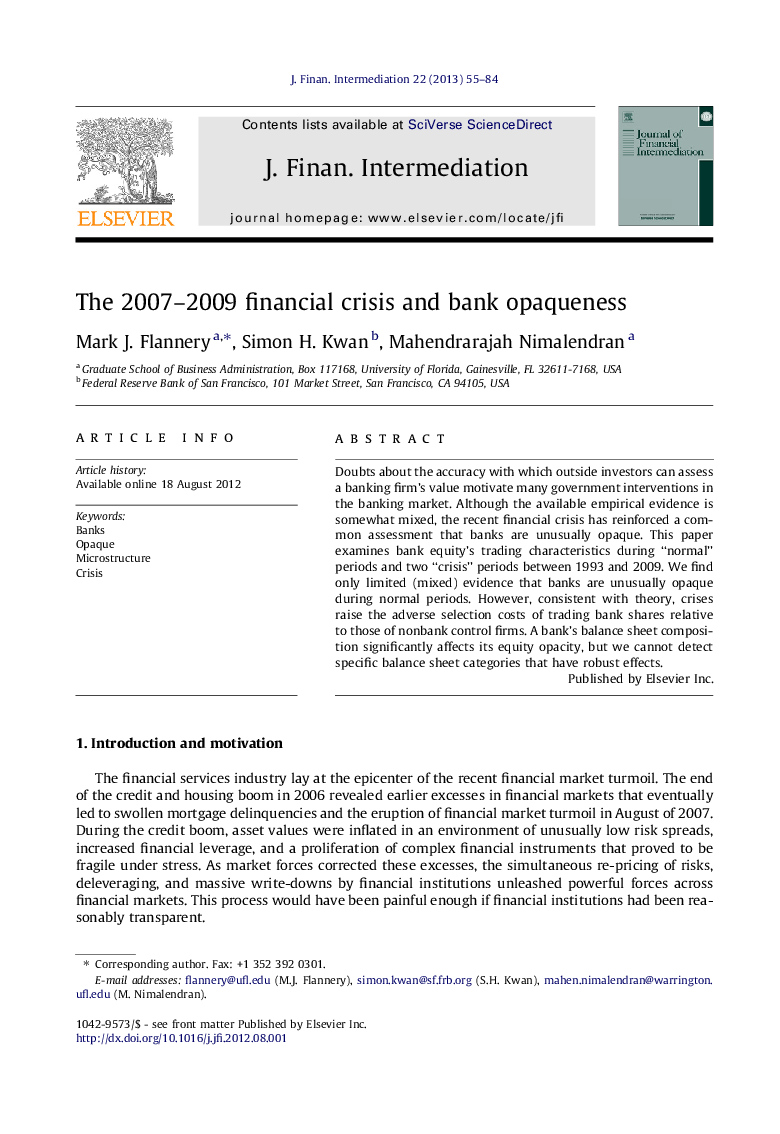| Article ID | Journal | Published Year | Pages | File Type |
|---|---|---|---|---|
| 960990 | Journal of Financial Intermediation | 2013 | 30 Pages |
Abstract
Doubts about the accuracy with which outside investors can assess a banking firm's value motivate many government interventions in the banking market. Although the available empirical evidence is somewhat mixed, the recent financial crisis has reinforced a common assessment that banks are unusually opaque. This paper examines bank equity's trading characteristics during “normal” periods and two “crisis” periods between 1993 and 2009. We find only limited (mixed) evidence that banks are unusually opaque during normal periods. However, consistent with theory, crises raise the adverse selection costs of trading bank shares relative to those of nonbank control firms. A bank's balance sheet composition significantly affects its equity opacity, but we cannot detect specific balance sheet categories that have robust effects.
Keywords
Related Topics
Social Sciences and Humanities
Business, Management and Accounting
Strategy and Management
Authors
Mark J. Flannery, Simon H. Kwan, Mahendrarajah Nimalendran,
